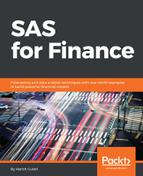Budget and demand forecasting are important aspects of any finance team. Budget forecasting is the outcome, and demand forecasting is one of its components. Contrary to popular belief, the finance team cannot make demand forecasting decisions without consulting various other teams. The marketing team may need to be involved to figure out the impact of a brand-new commercial series on potential sales in the next 12 months. This needs to be an input in demand forecasting to calculate revenue. The risk management team needs to be consulted to calculate the impact of risk modeling on capital provision requirements. This needs to be an input in budget estimation. These examples are more apt for a mid-range or larger organization. New customers joining and churn in an organization are aspects that also impact small organizations. This would impact budget planning for a small organization.
Hindsight is a luxury that the budget-forecasting process doesn't have. Hence, demand forecasting becomes an important component of the budgeting process. There are various qualitative and quantitative ways in which demand forecasting can be done. These could range from the de-briefing of sales staff, updating a model on a spreadsheet with basic assumptions, conducting a primary research survey, advanced statistical modeling, and so on.
Some of the topics that we will cover in the chapter include:
- Understanding the Markov model and exploring its use
- Forecasting using a Markov model
- Comparing Markov model forecasts with ARIMA generated forecasts
- Showcasing the use of the Markov model Monte Carlo method for data imputation
